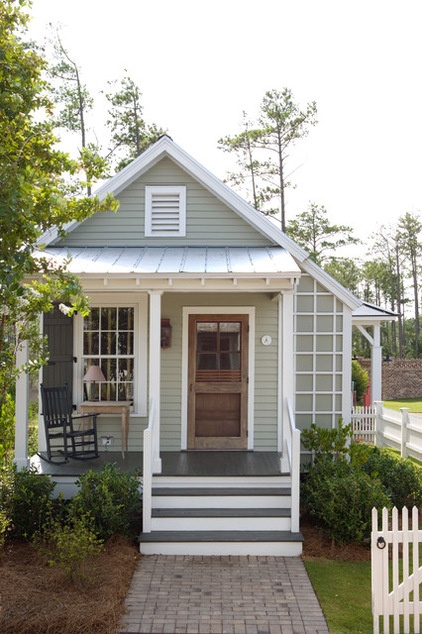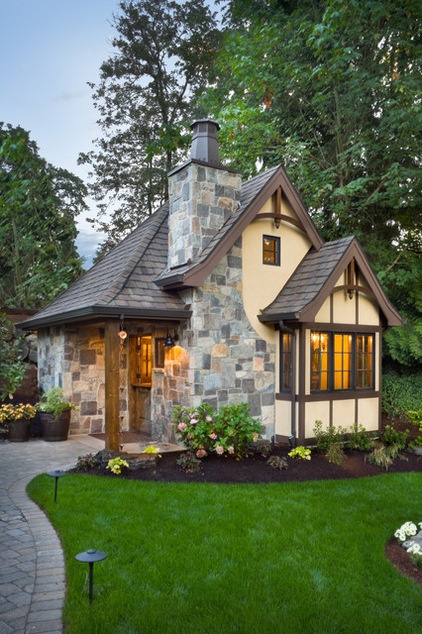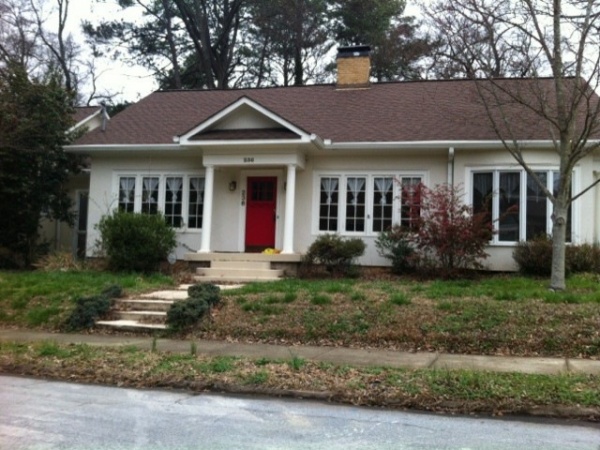How to Avoid Paying Too Much for a House
http://decor-ideas.org 07/25/2014 03:13 Decor Ideas
The postrecession real estate market can be a confusing market to buy a house in — especially if it’s your first one. In some regions low inventory has provoked heated bidding wars reminiscent of the heady days of the mid-2000s. In others the housing market has been recovering far more slowly. This can make it very difficult to figure out whether you can afford a certain neighborhood and how to bid competitively. That’s where comps come in.

The word “comp” is short for “comparable sale.” Basically, you’re looking to see what similar homes in your area have recently sold for, and you’ll use those numbers to figure out approximately what you should expect to spend. But how should you compare homes? And where do you find accurate selling prices?
“If you’re buying a home, it’s nice to know what else has sold in the neighborhood and for how much, so that a buyer feels reassured they’re not overpaying,” says Cassie Daughtrey, an agent with Realogics Sotheby’s International Realty in Seattle.
But determining which homes actually represent comparable sales is a subject of hot debate, even among seasoned real estate pros.
Brendon DeSimone, author of Next Generation Real Estate: New Rules for Smarter Home Buying & Faster Selling, says it all boils down to three general factors: number of bedrooms and bathrooms, square footage and location. Ideally, you want to compare homes where the square footage varies by only about 10 percent, and that are in the same neighborhood or school district.
And then there’s the issue of the timing of each sale, as prices tend to vary not only from year to year, but from season to season.
“You’re looking at homes that have sold within the last six months — even the last three months would be ideal,” says DeSimone. “Even more ideally, you’ll look at pending sales, because those have been negotiated most recently.”
Comparable sales are also a key tool for determining whether you can realistically afford a house of a certain size in a certain neighborhood.

You can check neighborhood prices online as well. This will help you target your search and make the most of the time you spend house hunting with your agent. Just don’t rely on home valuation websites for the duration of the home buying process.
“I like to be as specific as possible when looking at comps, because that’s what Zillow can’t do,” Daughtrey explains. “Zillow can’t evaluate a remodeled kitchen, how great the view is, vaulted ceilings, master bath remodels — any unique features like that.”
Your agent, however, can provide a clearer picture via their access to a multiple listing service, or MLS. These are private services on which brokers share information about which homes are on the market, how much they’re listed for and which sales are pending. If you’re working with an experienced agent, chances are, he or she has been tracking listings in your neighborhood for years, which is part of what makes him or her an expert on both current comps and how prices have fluctuated during the past few years.
With your due diligence done and an agent on your side, the next step is to start looking at properties — and not just six or seven. DeSimone says the best buyers look at 20 or even 30 properties before making a bid.

This is the time when comparable sales become especially important, as they’ll help you value engineer your bid competitively. “I like to see at least three to five active comparables, three to five pending comparables and five-plus sold comparables when evaluating a property,” says Daughtrey.
Chances are, you’ve actually seen some of those properties firsthand, which gives you even more ammunition to negotiate.
If the neighborhood you’re looking in is rife with foreclosures and short sales, those can bring down the value of the home you’re looking at. That said, the difficulties surrounding distressed properties will make foreclosures and short sales less valuable than standard sales, even in the same neighborhood. This is one of those situations when an experienced agent’s advice can be valuable.

When researching comps for clients, Daughtrey doesn’t include distressed properties on her list, because they’re usually so different from the property her clients are looking at. Many times those properties have years of deferred maintenance, which can result in both cosmetic and structural problems that are less common in traditional sales.
That’s not to say that home values won’t be affected by short sales and foreclosures in the same neighborhood. In fact, values may decrease in areas like Las Vegas, where the real estate bust brought an epidemic of foreclosures to new neighborhoods.
“If there is a newer neighborhood where, at the peak of the market, they were all selling and all of the homes were similar and the finishes were similar, then those homes can be directly affected by short sales and foreclosure properties,” Daughtrey explains.
While that’s certainly sad news for sellers, it’s good news for buyers who plan to live in the home for a long time, as you might be able to get into a traditional sale at a rock-bottom price. And the home’s value will likely increase during the years you live there.
The bottom line: Use every tool available to find out what homes are selling for in the neighborhood where you’d like to live. Arming yourself with information about comparable sales will help you bid competitively and avoid overpaying.
More: 5 Risks in Buying a Short-Sale Home — and How to Handle Them
Related Articles Recommended












